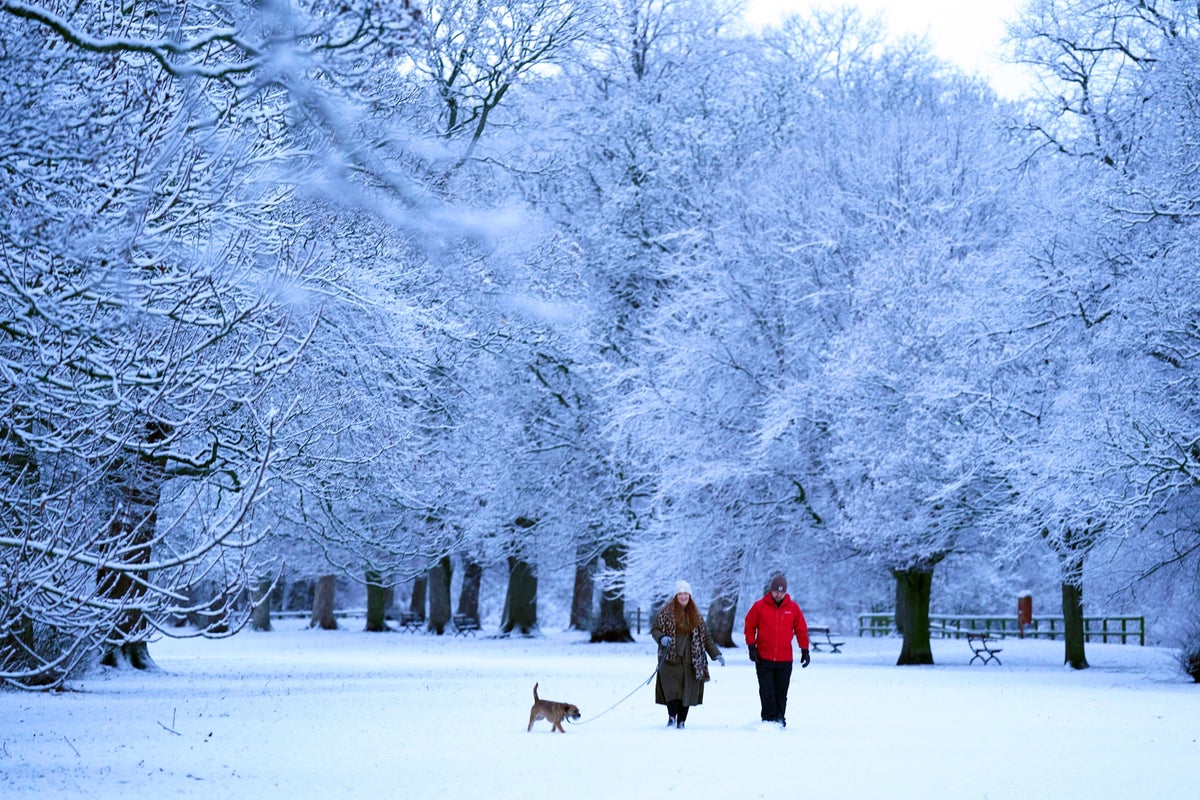Get the free Morning Headlines email for news from our reporters across the world
Sign up to our free Morning Headlines email
Snow, ice and freezing temperatures caused disruption across the UK in January as an Arctic blast swept across the country.
While February has beem much milder, even spring-like, at times, forecasters are now warning that a new cold snap could arrive in early March, bringing spells of rain or even snow.
There had been speculations that blizzards could hit the UK this week due to a phenomenon called sudden stratospheric warming but the forecaster has since clarified its effects are now expected to be felt in a few weeks.
During the January cold, schools in parts of the Scottish Highlands and Northern Ireland were forced to close their doors as a result of heavy snowfall, including in Shetland, Londonderry, Limavady and Strabane, with driving conditions deemed to be hazardous.
On snowy days, primary and secondary schools are advised by the government to make every effort to stay open.
Recommended
- UK weather: Snow expected in couple of weeks with cloudy and damp days ahead
- What is sudden stratospheric warming?
- UK weather: How to drive safely through snow and ice
- Cold weather payment checker: How to find out if you are owed one
But, occasionally, schools may be forced to close or operate at a reduced level, for example suspending individual classes, as a result of the weather.
But at what point would the wintry weather lead schools to close their doors? Here are the key questions and answers:
Who decides if schools should close?
According to the Department for Education, it is at the discretion of individual local authorities to decide whether closure is necessary based on their circumstances.
Usually, schools will have tried and tested policies in place to help them navigate adverse weather conditions.
Snowy conditions on the A69 Newcastle to Hexham in January
(PA)
How should schools and councils inform parents?
Schools will have their own approaches for contacting parents. In many circumstances, they have their own apps and/or messaging services.
Headteachers will try to give parents as much notice as possible but sometimes decisions will be made quite late as circumstances change.
What things should schools consider when deciding whether to close?
The government says local decision-making should be in large part based on common sense.
But there is a wide range of things that schools will consider, including staffing levels (if transport issues prevent teachers from getting to work, for example), safety conditions around the school, temperatures in school buildings and any heating system failures.
Drivers were warned to leave extra time for their Monday morning commute in January due to the icy state of the roads
(PA)
How cold does it have to be for schools to close?
According to the Education (School Premises) Regulations Act (1999), all school buildings must have a heating system to warm the rooms to the appropriate temperature.
Recommended
- Stroke survivor moves hand for first time in nine years after spinal stimulation
- Schools sending personalised texts to parents ‘could help tackle truancy crisis’
- LOCALIZE IT: Poor schools spend more US aid money on repairs
If the temperature outside the school is -1C or below, the building’s heating system should be able to reach the following temperatures at a height of 0.5m above floor level.
- 21C in areas with less physical activities like sick rooms or isolation rooms
- 18C in areas for teaching, private study or examinations
- 15C in areas with higher than normal levels of physical activity like spaces used for physical education, washrooms, sleeping accommodation and circulation spaces
✕
Subscribe to Independent Premium to bookmark this article
Want to bookmark your favourite articles and stories to read or reference later? Start your Independent Premium subscription today.
SubscribeAlready subscribed? Log in{{/url}}

